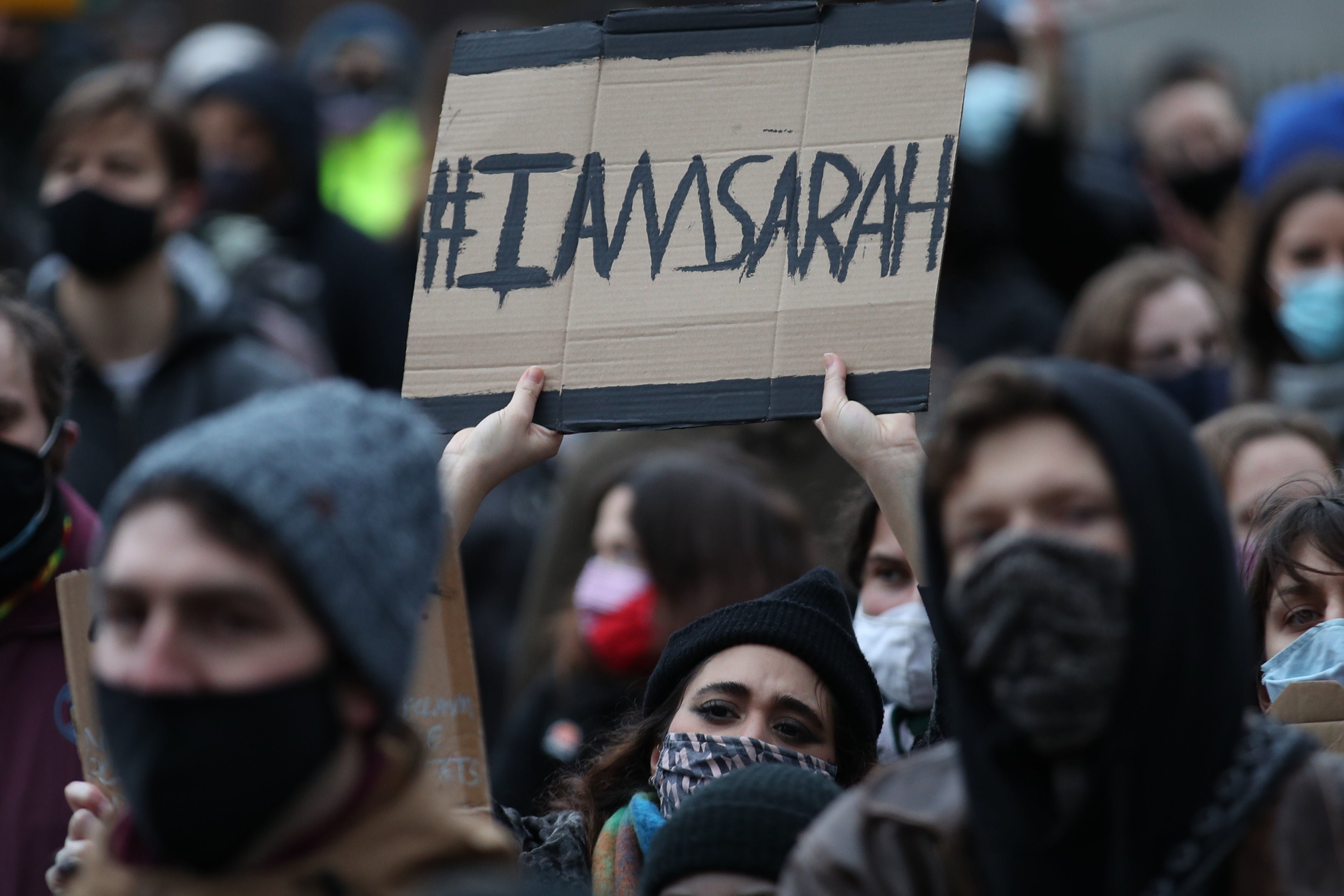Ministers can still restrict protests, Labour warns, despite claiming ban is lifted
Answers demanded over power to impose rules ‘relevant to the gathering’ in new regulations

Your support helps us to tell the story
From reproductive rights to climate change to Big Tech, The Independent is on the ground when the story is developing. Whether it's investigating the financials of Elon Musk's pro-Trump PAC or producing our latest documentary, 'The A Word', which shines a light on the American women fighting for reproductive rights, we know how important it is to parse out the facts from the messaging.
At such a critical moment in US history, we need reporters on the ground. Your donation allows us to keep sending journalists to speak to both sides of the story.
The Independent is trusted by Americans across the entire political spectrum. And unlike many other quality news outlets, we choose not to lock Americans out of our reporting and analysis with paywalls. We believe quality journalism should be available to everyone, paid for by those who can afford it.
Your support makes all the difference.Ministers are retaining powers to decide which protests will be allowed, Labour is warning – despite claiming to be lifting the controversial ban.
The small print of new Covid-19 regulations – to be approved by MPs later today – will allow the government to pick “what is allowed” when demonstrations are planned, the party said.
Organisers must show they are “taking into account any guidance issued by the government which is relevant to the gathering”, the new rules say.
“It means the government by guidance – which could be general, or could be specific to a particular protest – could determine what is allowed,” Jonathan Ashworth, Labour’s health spokesman warned.
He urged ministers to clarify what they meant before MPs vote, amid the outcry over the new Policing Bill which will outlaw “noisy protests” and impose other restrictions.
Read more:
- Follow Covid news live: Latest lockdown updates
- Bill Gates predicts world will be ‘completely back to normal’ by 2022
- Controversy over new AstraZeneca trial data raises more unwanted vaccine questions
- ‘No jab no pint’ plan would only come in when ‘absolutely everybody’ offered vaccine, Johnson says
- Lockdown roadmap dates: Which rules change on 29 March?
The temporary ban on all protests led to Priti Patel, the home secretary, being blamed for the Met force’s widely-criticised breaking up of the Sarah Everard vigil in London.
It was then announced that the ban would end next Monday, under the roadmap for lifting the lockdown – although Ms Patel refused to say she was “happy” that was happening.
The criticism came as Tory MPs lined up to criticise the renewal of the Coronavirus Act – for another six months – and new regulations to authorise restrictions during the current lockdown roadmap.
A revolt is looming on the former, amid anger over the length of time the emergency Act from the start of the pandemic, a year ago, will remain in place.
One former Cabinet minister, Jeremy Wright, called for “almost all” restrictions to be lifted by May, saying: “We know Covid will be with us for some time, perhaps indefinitely, and we cannot respond to that with indefinite restrictions any more than we would or do in response to the risk of other diseases.”
Desmond Swayne, another former minister, warned of “total social control”, pointing to Boris Johnson’s hint that “you will have to provide your vaccination bona fides when you go to the pub”.
And Charles Walker, vice chair of the 1922 backbench committee, revealed a bizarre protest plan, which would involve walking around London with a pint of milk.
In future, he would be siting with his family and would “spot that pint of milk on the table”, he told MPs.
“And that pint shall remind me that the act of protest is a freedom, a freedom, not a right and unless you cherish freedoms every day, unless you fight for freedoms every day, they end up being taken away from you.,” Mr Walker said.
The Liberal Democrats said they would vote against renewing the Coronavirus Act – rather than give the government “a blank cheque” – but Labour will support it, guaranteeing a government win.
But Jeremy Corbyn, the former leader currently suspended from the party, will join about 20 Labour leftwingers who oppose the extension.
Matt Hancock, the health secretary, admitted added the powers in the Coronavirus Act are “exceptional”, but insisted they would stay only “as long as they are necessary”.
Join our commenting forum
Join thought-provoking conversations, follow other Independent readers and see their replies
Comments